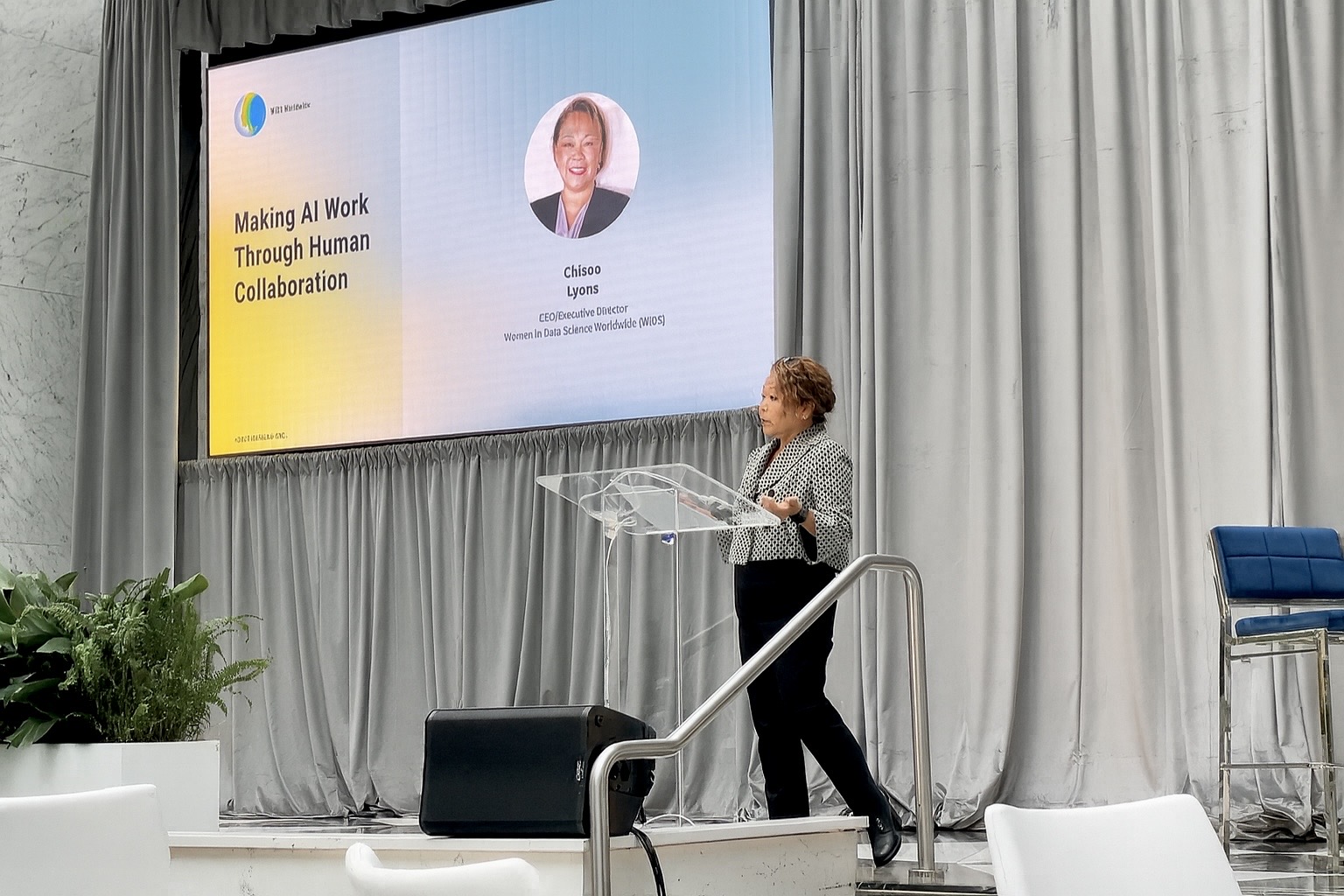At a recent Dataiku Summit, Chisoo Lyons, Executive Director of Women in Data Science (WiDS), shared a powerful story from her work with an international banking client. The bank had implemented a 10-tier scoring system to evaluate loan applications, but the system disproportionately rejected women. As she looked around the room, she noticed that she was the only woman at the table. That moment left a lasting impression on her, highlighting the urgent need to reconsider not just the technology we use, but also the human context in which it’s developed and applied.
Artificial intelligence has transformed the credit risk industry. Chisoo shared her journey leading two major innovations that reshaped how banks make decisions.
From Judgment to Data-Driven Decisions
The first innovation shifted the industry away from judgmental decisions toward those based on data-driven, objective algorithms. The science was exciting and profitable for banks, but convincing clients to trust the technology proved to be the greatest challenge.
Executives worried about losing control over decisions, employees feared for their jobs, and skepticism lingered. As one client bluntly put it: “I don’t understand what you’re talking about, but make sure your model doesn’t disagree with me.”
Despite resistance, the innovation had a profound social impact. It broke the cycle of exclusion by giving historically underserved populations, including women and those without credit history, access to loans. It demonstrated how technology could expand opportunity—but only if people were willing to embrace it.
From the Backroom to the Boardroom
The second phase of innovation Chisoo helped introduce to the industry brought AI from the backroom into the boardroom. The initial application of this innovation was an AI solution that automatically assigned monthly credit line increases for cardholders, optimizing portfolios to deliver up to 25% incremental profitability.
This solution designed to prescribe and take actions generated significant ROI to the business. Yet, implementation was not easy. Portfolio managers demanded transparency, consultants resisted losing control, and executives wanted guarantees of success. The technology was powerful, but its impact depended on how well people could trust, adopt, and integrate it.
Lessons for Today’s AI Era
Chisoo drew a clear connection to today’s rapid rise of AI and generative AI. The pattern is the same: powerful tools exist, but adoption lags when human factors are ignored. The difference today is speed—changes that once took decades are unfolding in just a few years.
Her conclusion was clear: every successful innovation requires four elements—science, data, technology, and humans. Time and again, the greatest barriers did not require technical skills; they required human skills.
The Power of WiDS Human Edge™ Skills
To navigate this new era, technical fluency is not enough. Success depends on what she called human edge skills:
- Critical thinking to challenge assumptions and anticipate downstream effects.
- Empathy and emotional intelligence to understand who will be impacted.
- Communication skills to translate complex concepts into plain language.
- Tenacity and courage to question the status quo.
These are the skills that make technology work for people, not against them.
That’s why WiDS is investing in new WiDS Human Edge™ educational programs designed to teach these skills, starting with youth and soon rolling out to professionals. Because in an age where AI is everywhere, it is our human edge that truly gives us the advantage.


